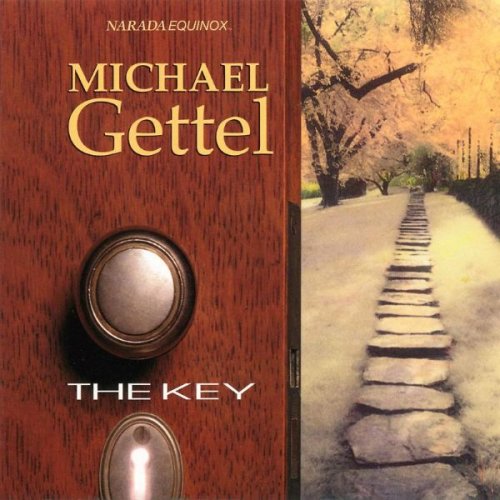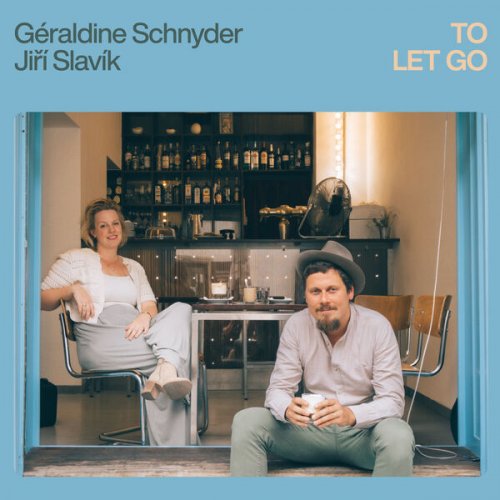VA - Koechlin: Chamber Music (2017)
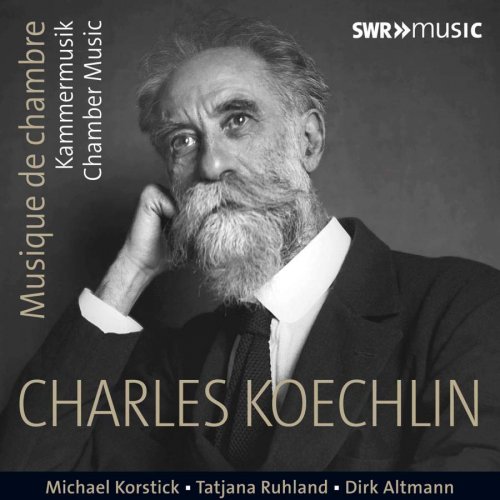
Artist: Various Artists
Title: Koechlin: Chamber Music
Year Of Release: 2017
Label: SWR Music – SWR19047CD
Genre: Classical
Quality: FLAC (image + .cue, log, artwork)
Total Time: 8:31:55
Total Size: 1.6 GB
WebSite: Album Preview
Title: Koechlin: Chamber Music
Year Of Release: 2017
Label: SWR Music – SWR19047CD
Genre: Classical
Quality: FLAC (image + .cue, log, artwork)
Total Time: 8:31:55
Total Size: 1.6 GB
WebSite: Album Preview
Despite the 27th of November 2017 being the 150th anniversary of the birth of Charles Koechlin, recording companies have been slow in celebrating the event apart, that is, from SWR Music who have collected their many recordings made for the Hänssler Classic label and combined them into two very fine 7 CD box sets.
Born in Paris, his family originated from the Alsace, and this leads to the first problem, how to pronounce his name; this has led to different pronunciations even amongst French enthusiasts. Koechlin was also a very prolific composer, there being 225 works with opus numbers, including many suites of small pieces, but he also allotted his teaching pieces opus numbers too, which means that not all his music is of the highest quality. He originally studied, at his family’s insistence, as a civil engineer, this despite his preference for music. After he graduated with modest qualifications he persuaded his family to allow him to study music at the Paris Conservatoire, where his teachers included Massenet. In 1896 he became a pupil of Fauré along with Ravel, Fauré was to have a great influence on Koechlin who, in 1927, would write the first biography of his teacher.
His compositional style is individualistic, due to his many influences including nature, oriental music, French folk song, Bach and Hollywood films; although his early works show an impressionism that has led him to be described as a missing link between Debussy and Poulenc. My own personal introduction to his music came in 1994 with David Zinman’s wonderful recording of the complete settings of Kipling’s Jungle Book (090266195527); I remember being blown away by the music. This was followed shortly afterwards by a performance during a student concert of his lovely Horn Sonata, the only piece of Koechlin’s music that I have ever heard live, which is sadly not included in this set. I have since invested in a number of recordings of his music, some included in the orchestral box, and all of which I have found to be captivating.
The first disc in this set concentrates on Koechlin’s music for clarinet and was originally issued by Hänssler as CD 89.446. This disc contains some wonderful music, not least the sonatas of 1923 which I never tire of hearing; the same can be said of the rest of the works presented here, especially the Quatorze Pieces pour Clarinette et Piano that offers 14 charming short character pieces. This is a disc which, like the rest in the set, I have listened to again and again.
The second disc presents some of his music for flute, most of which is present on CD 93.157, the exception being the Flute Sonata, Op. 52. This, like the disc of music for clarinet, presents some charming and highly melodic music that does not outstay its welcome. It presents the short Epitaphe de Jean Harlow, this not only shows his fondness for Hollywood, but also his great admiration for the actress. It is a piece of great tenderness and beauty and this despite its unusual scoring of flute, alto sax and piano.
I think disc three is my favourite of the chamber music discs, with both Le Portrait de Daisy Hamilton for clarinet and piano, once again inspired by an actress, this time Lillian Harvey, (who also appears in the second movement of his Seven Stars’ Symphony) and the Oboe Sonata being a revelation to me. His writing for the oboe is inspired and should, along with the sonatas for clarinet, for flute and for the bassoon that follows the oboe sonata, in my opinion be judged as important as the sonatas of Debussy or any of his contemporaries. This feeling is only strengthened by the Suite for Solo Cor Anglais, a work which shows the range and colour of the instrument to its full extent.
The fourth disc presents two of his string sonatas, those for Viola and Piano and for Cello and Piano; the first of these presents the ‘Cinderella instrument’ in a glowing light and was premiered in 1915 by Darius Milhaud and Jeanne Herscher-Clément. The final sonata in this set is that for cello, the fifth in a series of nine sonatas that Koechlin composed between 1911 and 1925. It is a work that brings the instrument’s full range of sonorities to the fore. However, if I had to choose just one piece for cello and piano it would be the Vingt Chansons bretonnes; it was in this work, written in three books, that Koechlin first directly quoted folk songs in his music, twenty in all, with the variety bringing out the best of the instrumentalists.
The following three discs present some of Koechlin’s music for solo piano, something I have greatly enjoyed over the years. That being said, I have a problem with the fist of these piano discs, it is not with the performance but with the programming. The disc presents the First and Second parts of L’album de Lilian; well that is the six pieces for solo piano taken from the two albums which is a great shame. I came to know the full works through the 3 CD set of Koechlin’s chamber music on the Accord label (465 894-2), and here they present the full works for soprano, flutes and piano in the first album, and flutes, ondes martenot, harpsichord and piano in the second, this portrays the music in its context and so sits better than just excerpt. Sadly, however, this excellent set is long deleted and can only be found at exorbitant prices on certain online sites. The Accord set also offers a fine recording of Paysages et marines, but in the chamber ensemble version; I do have Deborah Richards performing it on a CPO disc (999 054-2), but Michael Korstick’s version is certainly more desirable.
The sixth disc in the set offers Les heures persanes, again something I know well, both in its piano version, by Kathryn Stott (CHAN 9974), and in its orchestration, Lief Segerstram (8.550890). I must say, I have always found the original piano version the better of the two versions; the colouration in the piano heightens your imagination. Composed in 1919, Koechlin orchestrated it two years later, it was inspired not by his own travels, but by A Thousand and One Nights and by the travel writings of Pierre Loti; whatever the inspiration, the result is probably the composer’s most important piano work. I have always had a soft spot for Kathryn Stott’s version and it still remains my favourite, but only just.
The final work in this set begins with the wonderful Danses pour Ginger, two short pieces inspired once again by Hollywood, in particular the films of Ginger Rogers and Fred Astaire. However, it is the L'ancienne maison de champagne which is the most important work here. This is the third recording I have, of the others Christoph Keller, who also gives the Quatre Nouvelles Sonatines Op. 87, here presented on disc five, gives a stronger performance on the Accord set than Deborah Richards on CPO, his also being the quickest version; Michael Korstick gives us a very committed and nuanced version one that is equal to that of Keller.
The performances throughout this set are excellent; whether in the chamber music or the works for solo piano each performer gives a more than committed performance, seeming to get to the heart of this music and of the composer, the result being an excellent set and an ideal way to get to know Charles Koechlin’s chamber music. Yes there are works that I wish were here, not least the monumental Op. 80 Quintet pour piano et cordes, which remains on my wish list. The recorded sound is excellent whilst the accompanying booklet is exemplary. 164 pages long in German French and English, the notes give in-depth details on the composer and his music that has been derived from the original booklet notes from the single releases. This is a wonderful set, one which, if I gave Recording of the Month accolades to reissues, would certainly deserve it. -- Stuart Sillitoe, MusicWeb-International
Born in Paris, his family originated from the Alsace, and this leads to the first problem, how to pronounce his name; this has led to different pronunciations even amongst French enthusiasts. Koechlin was also a very prolific composer, there being 225 works with opus numbers, including many suites of small pieces, but he also allotted his teaching pieces opus numbers too, which means that not all his music is of the highest quality. He originally studied, at his family’s insistence, as a civil engineer, this despite his preference for music. After he graduated with modest qualifications he persuaded his family to allow him to study music at the Paris Conservatoire, where his teachers included Massenet. In 1896 he became a pupil of Fauré along with Ravel, Fauré was to have a great influence on Koechlin who, in 1927, would write the first biography of his teacher.
His compositional style is individualistic, due to his many influences including nature, oriental music, French folk song, Bach and Hollywood films; although his early works show an impressionism that has led him to be described as a missing link between Debussy and Poulenc. My own personal introduction to his music came in 1994 with David Zinman’s wonderful recording of the complete settings of Kipling’s Jungle Book (090266195527); I remember being blown away by the music. This was followed shortly afterwards by a performance during a student concert of his lovely Horn Sonata, the only piece of Koechlin’s music that I have ever heard live, which is sadly not included in this set. I have since invested in a number of recordings of his music, some included in the orchestral box, and all of which I have found to be captivating.
The first disc in this set concentrates on Koechlin’s music for clarinet and was originally issued by Hänssler as CD 89.446. This disc contains some wonderful music, not least the sonatas of 1923 which I never tire of hearing; the same can be said of the rest of the works presented here, especially the Quatorze Pieces pour Clarinette et Piano that offers 14 charming short character pieces. This is a disc which, like the rest in the set, I have listened to again and again.
The second disc presents some of his music for flute, most of which is present on CD 93.157, the exception being the Flute Sonata, Op. 52. This, like the disc of music for clarinet, presents some charming and highly melodic music that does not outstay its welcome. It presents the short Epitaphe de Jean Harlow, this not only shows his fondness for Hollywood, but also his great admiration for the actress. It is a piece of great tenderness and beauty and this despite its unusual scoring of flute, alto sax and piano.
I think disc three is my favourite of the chamber music discs, with both Le Portrait de Daisy Hamilton for clarinet and piano, once again inspired by an actress, this time Lillian Harvey, (who also appears in the second movement of his Seven Stars’ Symphony) and the Oboe Sonata being a revelation to me. His writing for the oboe is inspired and should, along with the sonatas for clarinet, for flute and for the bassoon that follows the oboe sonata, in my opinion be judged as important as the sonatas of Debussy or any of his contemporaries. This feeling is only strengthened by the Suite for Solo Cor Anglais, a work which shows the range and colour of the instrument to its full extent.
The fourth disc presents two of his string sonatas, those for Viola and Piano and for Cello and Piano; the first of these presents the ‘Cinderella instrument’ in a glowing light and was premiered in 1915 by Darius Milhaud and Jeanne Herscher-Clément. The final sonata in this set is that for cello, the fifth in a series of nine sonatas that Koechlin composed between 1911 and 1925. It is a work that brings the instrument’s full range of sonorities to the fore. However, if I had to choose just one piece for cello and piano it would be the Vingt Chansons bretonnes; it was in this work, written in three books, that Koechlin first directly quoted folk songs in his music, twenty in all, with the variety bringing out the best of the instrumentalists.
The following three discs present some of Koechlin’s music for solo piano, something I have greatly enjoyed over the years. That being said, I have a problem with the fist of these piano discs, it is not with the performance but with the programming. The disc presents the First and Second parts of L’album de Lilian; well that is the six pieces for solo piano taken from the two albums which is a great shame. I came to know the full works through the 3 CD set of Koechlin’s chamber music on the Accord label (465 894-2), and here they present the full works for soprano, flutes and piano in the first album, and flutes, ondes martenot, harpsichord and piano in the second, this portrays the music in its context and so sits better than just excerpt. Sadly, however, this excellent set is long deleted and can only be found at exorbitant prices on certain online sites. The Accord set also offers a fine recording of Paysages et marines, but in the chamber ensemble version; I do have Deborah Richards performing it on a CPO disc (999 054-2), but Michael Korstick’s version is certainly more desirable.
The sixth disc in the set offers Les heures persanes, again something I know well, both in its piano version, by Kathryn Stott (CHAN 9974), and in its orchestration, Lief Segerstram (8.550890). I must say, I have always found the original piano version the better of the two versions; the colouration in the piano heightens your imagination. Composed in 1919, Koechlin orchestrated it two years later, it was inspired not by his own travels, but by A Thousand and One Nights and by the travel writings of Pierre Loti; whatever the inspiration, the result is probably the composer’s most important piano work. I have always had a soft spot for Kathryn Stott’s version and it still remains my favourite, but only just.
The final work in this set begins with the wonderful Danses pour Ginger, two short pieces inspired once again by Hollywood, in particular the films of Ginger Rogers and Fred Astaire. However, it is the L'ancienne maison de champagne which is the most important work here. This is the third recording I have, of the others Christoph Keller, who also gives the Quatre Nouvelles Sonatines Op. 87, here presented on disc five, gives a stronger performance on the Accord set than Deborah Richards on CPO, his also being the quickest version; Michael Korstick gives us a very committed and nuanced version one that is equal to that of Keller.
The performances throughout this set are excellent; whether in the chamber music or the works for solo piano each performer gives a more than committed performance, seeming to get to the heart of this music and of the composer, the result being an excellent set and an ideal way to get to know Charles Koechlin’s chamber music. Yes there are works that I wish were here, not least the monumental Op. 80 Quintet pour piano et cordes, which remains on my wish list. The recorded sound is excellent whilst the accompanying booklet is exemplary. 164 pages long in German French and English, the notes give in-depth details on the composer and his music that has been derived from the original booklet notes from the single releases. This is a wonderful set, one which, if I gave Recording of the Month accolades to reissues, would certainly deserve it. -- Stuart Sillitoe, MusicWeb-International
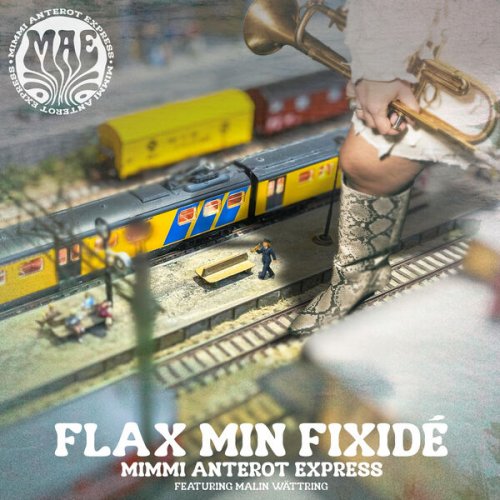


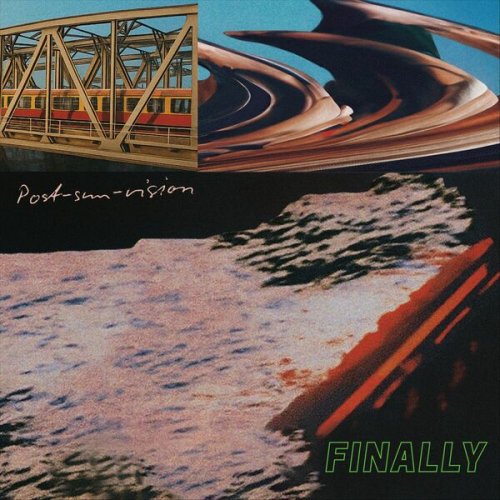
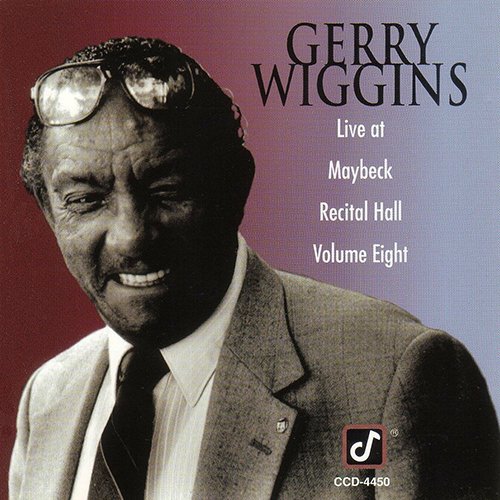
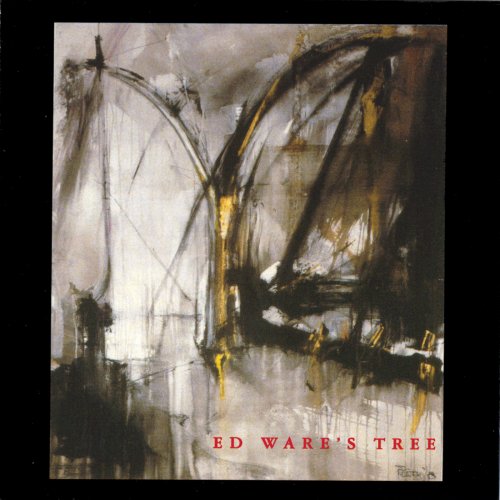
![Frank Sinatra - Christmas (Remastered) (2013) [Hi-Res] Frank Sinatra - Christmas (Remastered) (2013) [Hi-Res]](https://www.dibpic.com/uploads/posts/2025-12/1765618088_fsc500.jpg)
